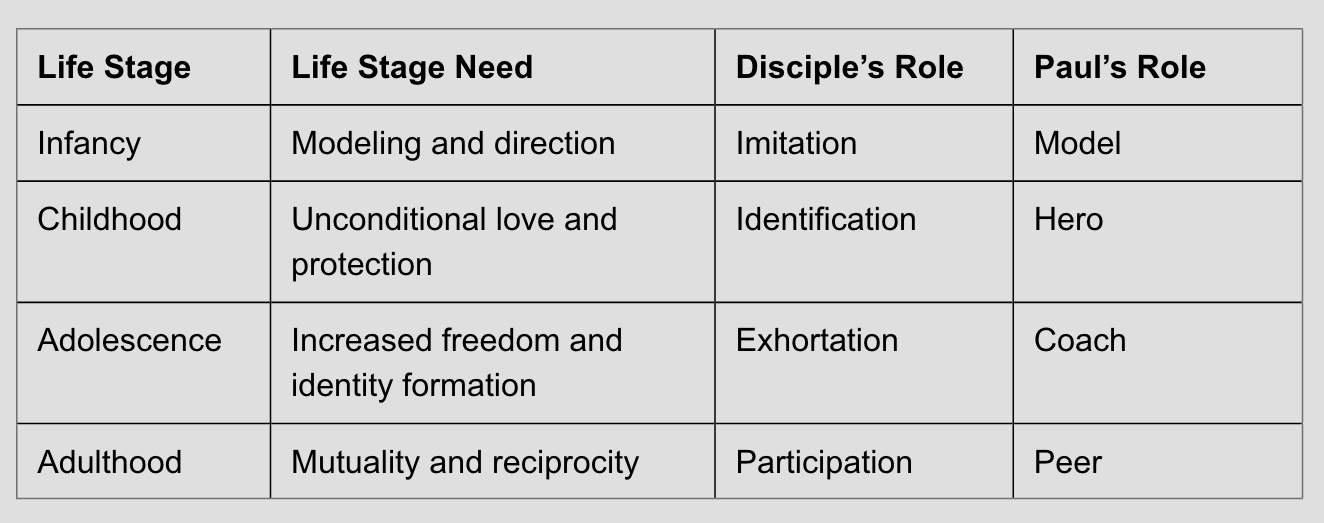2 Peter 1:2-4 – “Grace and peace be multiplied to you in the knowledge of God and of Jesus our Lord, 3 for His divine power has granted to us everything pertaining to life and godliness, through the true knowledge of Him who called us by His own glory and excellence. 4 Through these He has granted to us His precious and magnificent promises, so that by them you may become partakers of the divine nature, having escaped the corruption that is in the world on account of lust.”
Today I want to focus on knowledge, the knowledge of God which is a foundational principle of our spiritual growth. So, how do we gain knowledge about God? That’s where the Bible comes in.
1. George Muller, who established many orphanages throughout England, said… “I believe that the one chief reason that I have been kept in happy useful service is that I have been a lover of Holy Scripture. It has been my habit to read the Bible through four times a year; in a prayerful spirit, to apply it to my heart, and practice what I find there. I have been for sixty-nine years a happy man; happy, happy, happy.”
2. Ronald Reagan said, “Within the covers of one single book, the Bible, are all the answers to all the problems that face us today—if only we would read and believe.”
3. Missionary Amy Carmichael said, “Never let good books take the place of the Bible. Drink from the Well, not from the streams that flow from the Well.”
4. And this may be the most direct, author unknown, “A Bible in the hand is worth two in the bookcase.”
If you don’t hear anything else I say today, get this: Let’s make 2021 the best year ever in your spiritual growth by reading the entire New Testament. That is the reason I have organized this Foundation 260 initiative. Let’s read the New Testament together.
I don’t think there is anything more basic to knowing and loving Christ, and obeying him, than to hear God speak to us though his Word and then to speak back to him with the prayers and praises and obedience which flows from our hearts.
The reason for that is because it is so plain that today God reveals himself to us by the Word.
- The living Christ in his bodily form is not here. He has ascended and taken his place at the right hand of God.
- Neither are his inspired prophets and apostles here. God has ordained for himself to be known primarily by the Word that was recorded from those prophets and apostles—especially those who knew the Lord himself in his physical form—and preserved what we need to know in this book.
But let’s face it, reading through the entire Bible or even committing to reading a daily portion can be difficult. It can be a struggle to stay with it every day. That’s the way it is with most new things that we make a commitment to start; fitness, exercise, college, dieting. We begin with enthusiasm but somewhere along the way we give up. We lose focus, the excitement wanes.
We may feel that we don’t have the time for reading the Bible every day. But Dr. Tony Evans reminds us that we always have time for what is first on our list. The question then becomes: Is the Bible first on our list?
Why is the Bible important?
1) The Bible is enduring and lasting. (Because God is enduring) – Psalm 119:89 says: “Your Word, Oh Lord, is eternal; it stands firm in the heavens.” Isaiah 40:8 tells us, “The grass withers and the flowers fall, but the Word of our God stands forever.”
We live in changing times. Fads come and go, social mores change and we tend to drift away from God’s Word and lean more toward society and the culture around us.
But the Word of God is enduring! Isaiah contrasts it with flowers and grass. Flowers and grass may be here today and we enjoy them, but we know that they are short-lived. Their beauty is fleeting. The same is true of us, our time on earth is short. Our earthly “wisdom” is usually shortsighted. God’s Word endures and stands firm in the ups and downs of life.
The purposes of God, as published in these sacred writings, will never be stopped (cf. Matt. 5:18; 24:25; Mark 13:3; Luke 16:17). Remember the words in Isaiah 55:11, “So shall My word be that goes forth from My mouth; it shall not return to Me void, but it shall accomplish what I please, and it shall prosper in the thing for which I sent it.” So, the Bible is enduring, but it is also trustworthy…
2) The Bible is trustworthy (Because God is trustworthy) – Psalm 111:7 says, “All he does is just and good, and all his commandments are trustworthy.” In Ezekiel 12:25, “For I am the Lord! If I say it, it will happen.”
God will fulfill what he says. He will honor his promises. He is faithful and just and we can depend on what he says. You can build your life upon the foundation of the Bible.
In our world it can sometimes be very difficult to find a trustworthy and reliable person. Whether a car mechanic or a doctor or a plumber, a trustworthy person can be hard to find. People often go back on their word. They fail to live up to their commitments. Have YOU ever been burned by an unreliable person? Have you put your trust in something or someone and they let you down? Most of us have and that makes us a little hesitant to trust. But God has always been and always will be faithful, and because he is faithful, his word can be trusted. Since he has been faithful in the past, he can be trusted to be faith in the present.
Why am I challenging you to read the Bible?
Let’s start with the negative: we don’t want to be ignorant of what God has told us.
- Paul often warned his readers that he did not want them to be ignorant about important subjects, like when he wrote to the Romans in 11:25 pleading with them not to be ignorant regarding the dealings of God with Gentiles and the nation of Israel.
- He warned the Corinthians repeatedly about not being ignorant of several different theological subjects. He said in 1 Corinthians 12:1 “Now concerning spiritual gifts, brethren, I do not want you to be ignorant.” He was also disappointed with them regarding their divisions in the church and he was saddened that they were still needing milk like infants when they should have been pressing on to more substantial “meaty subjects.”
- He warned then not to be ignorant concerning the schemes of Satan (2 Corinthians 2:11).
- He warned the Thessalonians to not be ignorant concerning Christ’s second coming (1 Thessalonians 4:13)
The writer to the Hebrews grieved over their lack of spiritual progress in Hebrews 5:11-12 – “There is much more we would like to say about this, but it is difficult to explain, especially since you are spiritually dull and don’t seem to listen. 12 You have been believers so long now that you ought to be teaching others. Instead, you need someone to teach you again the basic things about God’s word. You are like babies who need milk and cannot eat solid food.”
Jesus rebuked the Sadducees for their lack of Bible knowledge, like in Matthew 22:29 – “Jesus replied, “Your mistake is that you don’t know the Scriptures, and you don’t know the power of God.”
Likewise, Jesus rebuked the Pharisees in Matthew 12:3 by saying, “Have you not read in the Scriptures what David did when he and his companions were hungry?”
God speaks to us through his Word and we don’t want to be unaware of what he is saying to us. That is why it is important that we spend time reading His Word.
Now let’s look at some positive reasons:
Reading God’s word gives us: Education, Endurance, Encouragement and Hope.
Look at Romans 15:4 – “For whatever was written in earlier times was written for our instruction, so that through perseverance and the encouragement of the Scriptures we might have hope.”
The Scripture is given for our EDUCATION. That presupposes that we will not only be reading the Bible regularly but that we will also be studying it for ourselves. We can’t rely exclusively on the teaching of others. We need to be in the Word ourselves. Reading, meditating, and memorizing, and digging into the parables and the narrative sections and the doctrine and the theology. We need to be listening to God speaking through his Word.
The Bible is given for us to ENDURE – We need to read God’s Word in difficult times. When the news is bad. When things are not working out like we had hoped. We don’t need endurance when times are good. Contained within the pages of the Bible are stories of endurance. Check our Hebrews 11 and read about the Hall of Faithfulness.
These are stories of men and women whose faith endured in the midst of difficult times. We have wonderful records of the prophets who endured all sorts of treatment and lack of results for their effort.
And coming to the New Testament we see Jesus who endured ill-treatment and abuse and yet he endured. And going further we observe the Apostles and the early church who through faith in God and his Word, they were able to persevere when the whole world seemed against them.
Knowing the Bible gives us ENCOURAGEMENT – Many times I have been encouraged by the Scriptures and I’m sure that you have as well. There have been times when it seemed like just the right verse came along at the right time to lift me up and to help me keep going. I don’t see how lost people are able to deal with tragedy and difficulty. How does a person who does not know God deal with loss, suffering, and hardship? Many turn to alcohol or drugs or other forms of abuse to deaden the pain. But those things don’t solve the problems, do they? In fact, they make the problems worse.
When I am feeling down, I know that I can turn to God’s Word and be lifted up out of that pit. But I need to be regularly in that Word in order for the Holy Spirit to bring out the help that I need.
Finally, knowing the Bible gives us HOPE – You can live for weeks without food. You can go for days without water. But how long can you live without hope? Ken recently reminded us of the words of Dostoevsky who said, “To live without hope is to cease to live.” Shakespeare said, “The miserable have no other medicine, but only hope”
Theologian Ken Boa wrote, “People cannot live without hope. Throughout history, human beings have endured the loss of many things. People have lost their health, their finances, their reputations, their careers, even their loved ones, and yet have endured. The pages of history books are filled with those who suffered pain, rejection, isolation, persecution, and abuse; there have been people who faced concentration camps with unbroken spirits and unbowed heads, people who have been devastated by Job-like trials and yet found the strength to go on without cursing God and dying. Humans can survive the loss of almost anything – but not without hope.”
We live by hope, and when hope is gone, endurance and joy and energy and courage just evaporate. Life itself begins to fade. When hope goes, we start to die. One of the most profound proverbs of the Bible says, “Hope deferred makes the heart sick, But desire fulfilled is a tree of life.” (Proverbs 13:12).
Romans 15:13 says, “Now may the God of hope fill you with all joy and peace in believing, so that you will abound in hope by the power of the Holy Spirit..”
Maybe you agree that having the habit of daily Bible reading is a good idea. Maybe you struggle with being able to carry it out long term. In the past maybe you have started out well only to struggle somewhere along the path.
In previous years, we have challenged you to read the whole Bible in a year. That may be nothing new for you; I’ve begun to read the whole Bible in a year on many occasions… the emphasis is on “begun.” But with all the best intentions, we sometimes aren’t able to finish the whole Bible in a year.
This year, let’s try something different. Rather than focusing on reading through the Bible in a year, let’s focus on getting to know the God of the Bible. Let’s not read these chapters to check it off our reading list but focus on what God wants to teach us through our daily reading.
Foundation 260 is all about reading a chapter a day, focusing on that one verse a day that jumps off the page for you, reading Monday through Friday. The New Testament has 260 chapters, and when we read 5 chapters a week, we cover the entire New Testament in the 52 weeks of 2021.
You can do this on your own, if you choose. I have a few helpful tools in the foyer.
Or, you might prefer the accountability of reading with other people who will challenge and encourage you to keep up with your reading, and also rejoice with you as you share how God is speaking to you through reading the Bible. Here is a link to join my Monday group.
There is a YouVersion App with an F260 reading plan, what could be easier? You can invite your friends to read with you and to hold each other accountable. I have also developed a few tools to help you succeed.
1) This one explains the process and gives a lot of information to help you dig into the text.
2) This one is the reading plan itself, reminding you what you will read each week to stay on track, and
3) This one is the monthly reading and application guide to record your reading and actually write down what God is teaching you each day.
This next year, won’t you join me in reading through the New Testament? We all understand that Bible study is so important, but hearing God speak is even greater.
Let’s do this in 2021. Will you make the commitment to be a part of Foundation 260? Will you read the text each day? Will you join or start a group to discuss what God is teaching you?
Let’s pray about it.
Lord Jesus, we need to hear from you. We confess that we have not advanced toward maturity as we first hoped, and that we have become distracted and stagnant in the worries and cares of this life. Father, help us to make this commitment in good faith, and help us to trust you to keep us on track, because you have said through your Word that, “…I am the vine; you are the branches. Those who remain in me, and I in them, will produce much fruit. For apart from me you can do nothing.” Father, we cannot do this on our own, and it would be futile to try to make it happen, but with all praise going to YOU, we can do this together with your help. Lord Jesus, speak to us, and make our lives useful to you. AMEN
During this next song, seek God’s direction about your involvement in the challenge.
I won’t shame anyone who is not ready to make this commitment, but perhaps you have been waiting for such an opportunity to do something like this. So, if you are on board with F260, would you stand up right now and show this congregation the desire of your heart to take on this challenge.
Seriously, if you’re not ready to do this, I understand, people around you understand. Please don’t stand up if you need more time to consider this commitment.
Closing Remarks: Find out more at the church website, come up and talk to me about it, join the group through the church groups app, and let’s make 2021 the best year ever for your spiritual growth.




